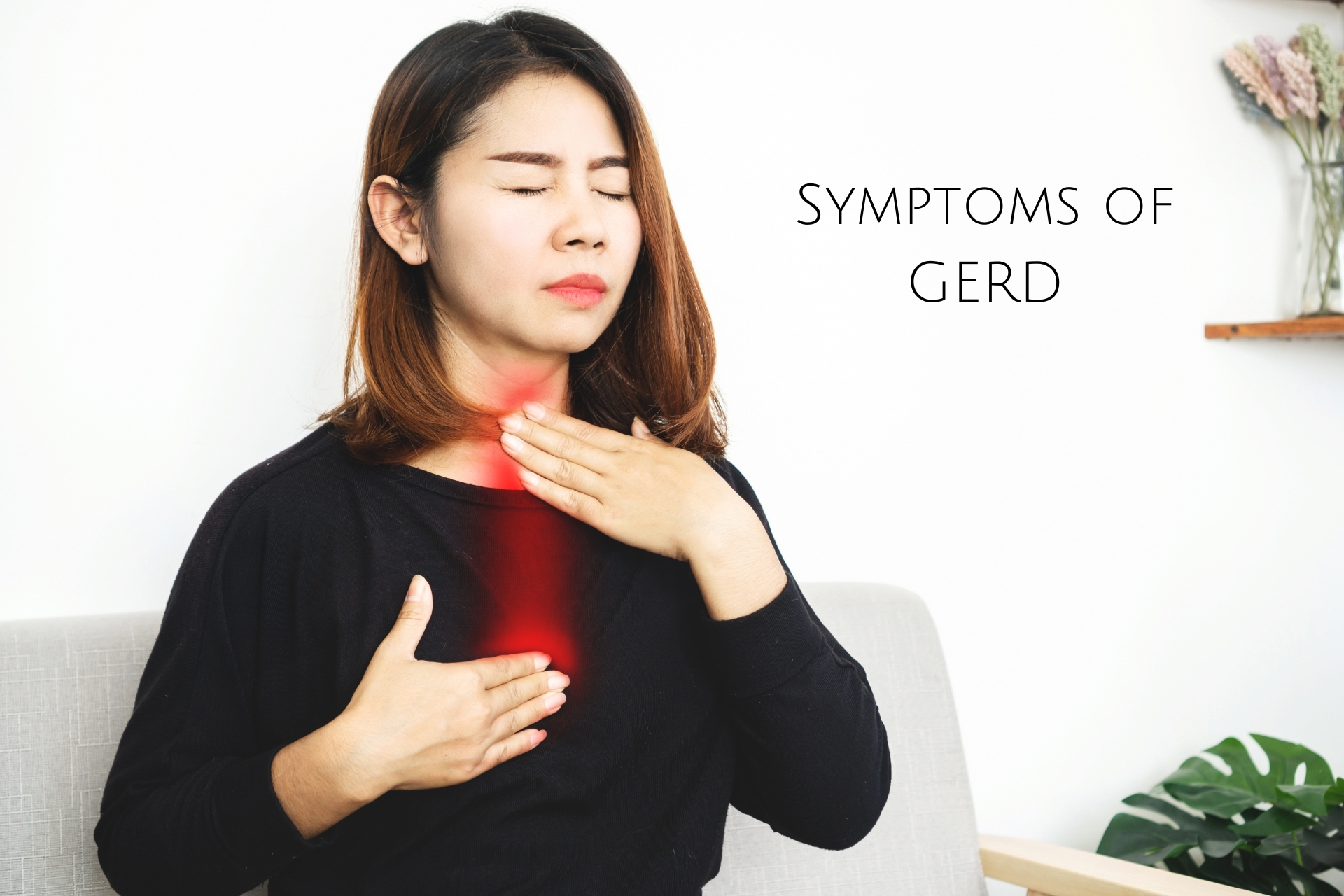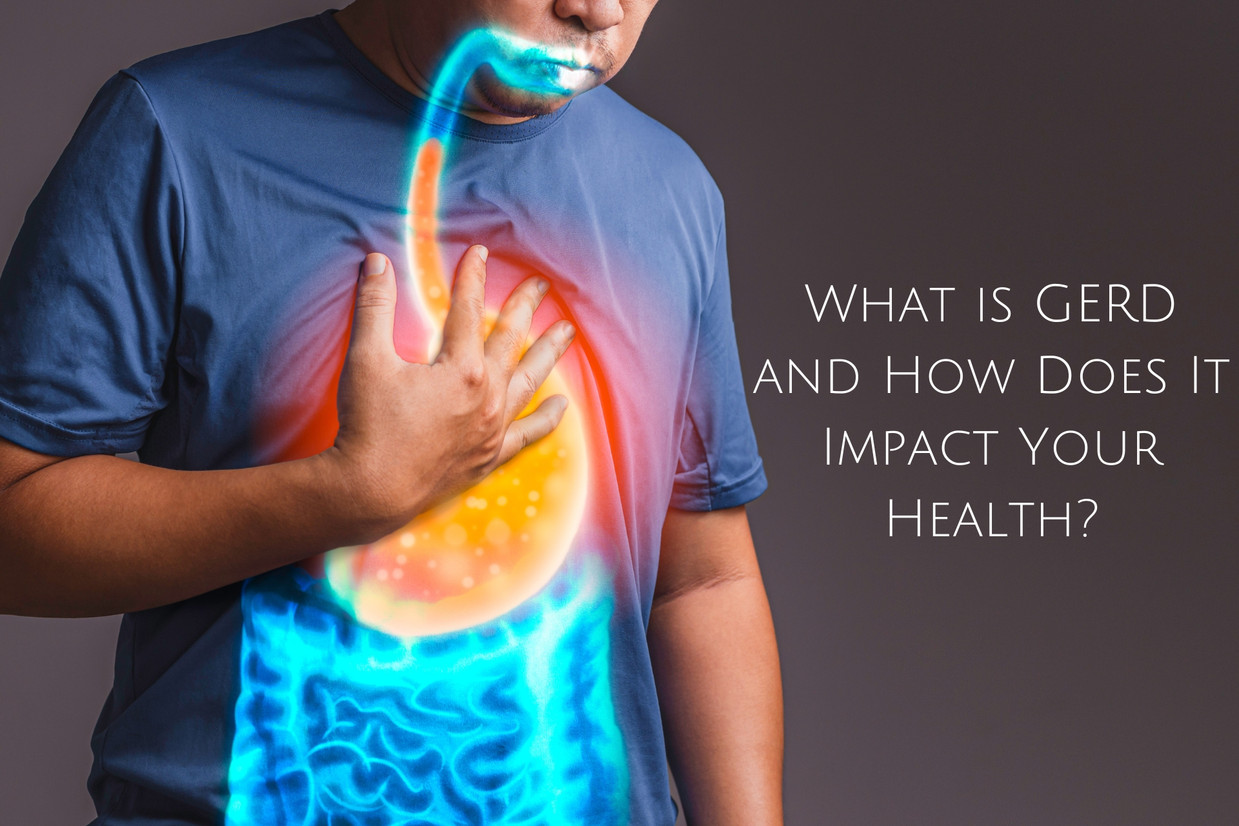What is GERD and How Does It Impact Your Health?
Gastroesophageal Reflux Disease (GERD) is a widespread yet often misunderstood condition that affects millions of people globally. Unlike occasional heartburn, GERD is a chronic disorder that can significantly impact your quality of life and long-term health if left untreated. It’s essential to understand what GERD is, its symptoms, causes, and the potential health complications it can lead to so that you can take the necessary steps to manage and treat it effectively.
What is GERD?
GERD occurs when stomach acid or bile flows back into the esophagus, the tube connecting your mouth to your stomach. This backward flow, known as acid reflux, irritates the sensitive lining of the esophagus. While occasional reflux is common—especially after a heavy meal or lying down soon after eating—GERD is diagnosed when the reflux becomes chronic, occurring at least twice a week, or when it leads to complications.
At the heart of GERD is a weakened or malfunctioning lower esophageal sphincter (LES). The LES is a ring of muscle that acts as a valve between the esophagus and the stomach. Normally, it opens to let food pass into the stomach and closes tightly to prevent stomach contents from flowing backward. In GERD, the LES may relax inappropriately or become weak, allowing acid and partially digested food to escape into the esophagus.
Symptoms of GERD:
GERD presents with a range of symptoms, which can vary in severity and frequency. Common symptoms include:
- Heartburn:
A burning sensation in the chest or throat, typically occurring after eating or when lying down. This symptom is the hallmark of GERD but can sometimes be mistaken for heart-related chest pain. - Regurgitation:
The sensation of stomach contents, including acid, rising back into the throat or mouth, often leaving a sour or bitter taste. - Difficulty Swallowing (Dysphagia):
A feeling of food being stuck in the throat or chest, which can occur due to inflammation or narrowing of the esophagus. - Chronic Cough:
A persistent cough, especially at night or after meals, often mistaken for allergies or a respiratory issue. - Hoarseness or Sore Throat:
Repeated exposure to stomach acid can irritate the throat and vocal cords, leading to hoarseness or a chronic sore throat. - Chest Pain:
GERD-related chest pain can mimic heart pain, making it critical to differentiate between the two through medical evaluation. - Bloating and Nausea:
Some people with GERD experience a sensation of fullness or nausea after eating.
If you experience these symptoms regularly, it’s important to seek medical advice, as untreated GERD can lead to serious health issues.
What Causes GERD?
Several factors can contribute to the development of GERD, including:
- Weakened LES: A weak or dysfunctional LES is the primary cause of GERD.
- Obesity: Excess weight increases pressure on the stomach, promoting reflux.
- Pregnancy: Hormonal changes and abdominal pressure during pregnancy can lead to temporary GERD.
- Hiatal Hernia: A condition where part of the stomach moves above the diaphragm, impairing the LES’s function.
- Certain Medications: Drugs like antihistamines, calcium channel blockers, and antidepressants can relax the LES.
- Lifestyle Factors: Smoking, excessive alcohol consumption, and diets high in fatty or spicy foods can worsen GERD.
How GERD Impacts Your Health:
If untreated, GERD can lead to both short-term discomfort and long-term health complications. Here are some of the ways GERD can affect your body:
- Esophagitis:
Chronic acid exposure can inflame the esophagus, leading to pain, discomfort, and difficulty swallowing. - Esophageal Stricture:
Scarring from repeated inflammation can cause the esophagus to narrow, making it difficult for food and liquids to pass through. - Barrett’s Esophagus:
This condition occurs when the lining of the esophagus changes to resemble the intestinal lining. Barrett’s Esophagus increases the risk of developing esophageal cancer. - Respiratory Issues:
Acid reflux can spill into the lungs, causing chronic cough, asthma-like symptoms, or even pneumonia. - Tooth Erosion:
The acid from reflux can erode tooth enamel, leading to increased sensitivity and a higher risk of cavities. - Sleep Disruption:
Nighttime GERD can interfere with sleep due to discomfort, coughing, or choking sensations. - Reduced Quality of Life:
Persistent symptoms can cause emotional distress, anxiety, and difficulty enjoying daily activities.
How to Manage GERD: Lifestyle and Treatment Options:
While GERD is a chronic condition, it is manageable with the right combination of lifestyle changes and medical interventions.
Lifestyle Modifications:
- Dietary Changes: Avoid foods that trigger symptoms, such as spicy, fatty, or acidic foods. Eating smaller, more frequent meals can also help.
- Weight Loss: For individuals who are overweight, losing weight can reduce pressure on the stomach and LES.
- Quit Smoking: Smoking weakens the LES and increases stomach acid production.
- Elevate the Head of Your Bed: Raising the head of your bed by 6–8 inches can reduce nighttime reflux.
- Avoid Eating Before Bedtime: Wait at least 2–3 hours after eating before lying down.
Medical Treatments:
- Antacids: Provide quick relief by neutralizing stomach acid.
- H2 Blockers: Reduce acid production and provide longer-lasting relief.
- Proton Pump Inhibitors (PPIs): Stronger than H2 blockers, PPIs reduce acid production and allow the esophagus to heal.
- Prokinetics: Help the stomach empty faster and improve LES function.
- Surgery: In severe cases, procedures like fundoplication can strengthen the LES and prevent reflux.
When to See a Doctor:
You should consult a healthcare provider if you experience:
- Frequent or severe symptoms that don’t respond to lifestyle changes or over-the-counter medications.
- Difficulty swallowing.
- Unexplained weight loss.
- Vomiting blood or black stools.
- Persistent chest pain that may be mistaken for heart problems.
Conclusion:
GERD is a common but serious condition that affects not only your digestive health but also your overall well-being. Early diagnosis and effective management can prevent complications and improve your quality of life.
If you’re experiencing GERD symptoms, don’t ignore them. Seek medical advice and adopt a proactive approach to managing this condition. A few lifestyle changes and the right treatment plan can make a world of difference in how you feel every day.
Recent Posts
-
Red Nails vs Pink Nails: Which Looks More Romantic for Valentine’s Day?
Introduction: Valentine's Day approaches, and with it comes the timeless question: red nails or pink
-
The Wellness Valentine: Valentine’s Day Gift Ideas for Health & Wellness Lovers
Introduction: Valentine's Day has evolved beyond traditional red roses and chocolate boxes. In today
-
AI-Nutrition & Microbiome Tracking: The Personalized Wellness Revolution for India
Introduction: Traditional nutrition and wellness have relied on a one-size-fits-all approach, offeri





